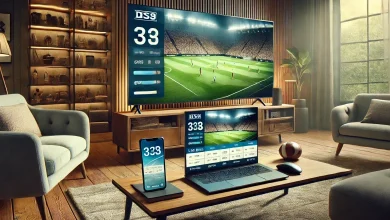Expert Advice on Upgrading Your Home’s Plumbing System

Upgrading your home’s plumbing system can improve efficiency, increase comfort, and enhance the overall value of your property. Whether you’re looking to address aging pipes, improve water pressure, or incorporate modern fixtures and technologies, upgrading your plumbing requires careful planning and expert guidance. In this comprehensive guide, we’ll provide expert advice on upgrading your home’s Plumbers system, covering key considerations, common upgrade options, and practical tips for a successful renovation project.
Assessing Your Plumbing Needs
Before diving into a plumbing upgrade, it’s essential to assess your home’s existing plumbing system and identify areas that require improvement or replacement. Consider the following factors when evaluating your plumbing needs:
Age of Plumbing Components
Determine the age and condition of your home’s plumbing components, including pipes, fixtures, and appliances. Older plumbing systems may be prone to corrosion, leaks, and reduced performance, necessitating upgrades to ensure reliability and safety.
Water Quality and Pressure
Test your home’s water quality and measure water pressure to identify any issues such as hard water, sediment buildup, or low water pressure. Addressing water quality and pressure concerns may require installing filtration systems, water softeners, or pressure-boosting devices.
Energy Efficiency
Evaluate the energy efficiency of your plumbing system and look for opportunities to reduce water and energy consumption. Upgrading to high-efficiency fixtures, appliances, and heating systems can lower utility bills and minimize environmental impact.
Functional Requirements
Consider your family’s lifestyle and functional requirements when planning a plumbing upgrade. Assess the usage patterns of plumbing fixtures and appliances, such as toilets, showers, sinks, and washing machines, to determine the optimal configuration and capacity for your household.
Future Expansion and Adaptability
Anticipate future needs and potential changes in your household when designing your upgraded plumbing system. Plan for expansion, renovation, or adaptation to accommodate growing families, lifestyle changes, or aging in place requirements.
Common Plumbing Upgrades
Once you’ve assessed your plumbing needs, you can explore various upgrade options to modernize and optimize your home’s plumbing system. Here are some common plumbing upgrades to consider:
Repiping
If your home has outdated or deteriorating pipes, repiping may be necessary to replace old, corroded, or galvanized pipes with modern materials such as copper, PEX, or PVC. Repiping can improve water quality, reduce leaks, and enhance the longevity of your plumbing system.
Fixture Replacement
Upgrade outdated fixtures such as faucets, showerheads, toilets, and sinks with water-efficient, high-performance models. Choose fixtures with the WaterSense label to ensure optimal water conservation and efficiency.
Water Heater Upgrade
Replace old, inefficient water heaters with energy-efficient models such as tankless water heaters or heat pump water heaters. These systems provide on-demand hot water, reduce energy consumption, and offer long-term cost savings.
Drainage and Sewer Line Repair
Address drainage issues and sewer line problems by repairing or replacing damaged or clogged pipes. Consider trenchless sewer repair techniques for minimally invasive and cost-effective solutions.
Water Filtration and Softening
Install water filtration and softening systems to improve water quality by removing contaminants, sediment, and hardness minerals. Water filtration systems ensure clean, safe drinking water, while water softeners prevent scale buildup and extend the life of plumbing fixtures and appliances.
Plumbing Fixture Retrofitting
Upgrade existing fixtures with retrofit devices such as aerators, flow restrictors, and pressure-balancing valves to improve water efficiency and performance. Retrofitting can enhance the functionality of older fixtures without the need for full replacement.
Smart Plumbing Technologies
Incorporate smart plumbing technologies such as leak detection sensors, Wi-Fi-enabled faucets, and programmable irrigation systems to monitor and control water usage remotely. Smart technologies enhance convenience, reduce water waste, and provide real-time insights into your home’s plumbing system.
Practical Tips for a Successful Plumbing Upgrade
Work with Licensed Professionals
Hire licensed plumbers or plumbing contractors with experience in plumbing upgrades and renovations. Professional plumbers can assess your plumbing needs, recommend appropriate upgrades, and ensure installations comply with local building codes and regulations.
Obtain Permits and Approvals
Before starting any plumbing upgrade project, obtain necessary permits and approvals from local authorities. Compliance with building codes and regulations is essential to ensure the safety, legality, and integrity of your plumbing installations.
Budget Wisely
Set a realistic budget for your plumbing upgrade project and prioritize essential upgrades based on your needs and preferences. Allocate funds for materials, labor, permits, and contingencies to avoid overspending and unexpected costs.
Plan for Disruption
Be prepared for temporary disruptions to water service and daily routines during plumbing upgrades. Coordinate with your plumber to schedule work at convenient times and minimize inconvenience to household members.
Maintain Regular Maintenance
After completing your plumbing upgrades, establish a regular maintenance schedule to keep your Plumbers system in optimal condition. Perform routine inspections, cleanings, and repairs to prevent issues and prolong the lifespan of your upgraded plumbing components.
Conclusion
Upgrading your home’s plumbing system is a worthwhile investment that can enhance comfort, efficiency, and value. By assessing your plumbing needs, exploring upgrade options, and following expert advice, you can plan and execute a successful plumbing renovation project. Whether you’re repiping outdated pipes, replacing fixtures with water-efficient models, or incorporating smart plumbing technologies, prioritizing quality, safety, and compliance will ensure a reliable and functional plumbing system for years to come. Consult with licensed professionals, obtain necessary permits, and budget wisely to achieve the desired results and enjoy the benefits of a modernized plumbing system in your home.




